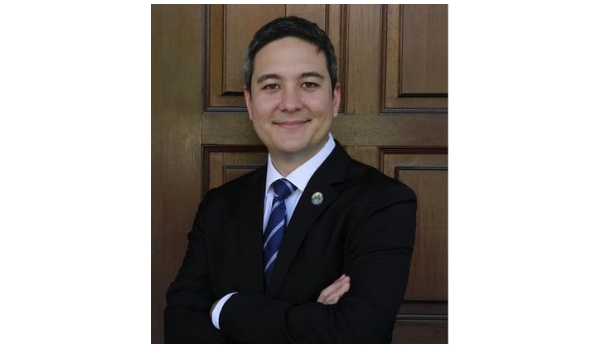SLS: Set up Bench Bar Press Association
Published on: Saturday, January 19, 2019

Kota Kinabalu: Sabah Law Society (SLS) proposed the formation of a “Bench Bar Press Association” to promote communication between all stakeholders towards preserving both the right to a fair trial and the freedom to disseminate news.
ADVERTISEMENT
Its President, Brenndon Keith Soh said this in response to the suggestion by the Chief Justice last week that a media centre be created to ensure accuracy of reporting by the press, adding with such common ground, understanding can be found by responsible members of the legal and journalistic professions to encourage fair and accurate reporting.
ADVERTISEMENT
“In an effort to mitigate potential conflict, a statement of principles could be deliberated and agreed upon so as to enable the media to keep the public informed without violating the rights of any individual adult or child.
“This body would also serve to facilitate and encourage the public and the media to learn about the judicial system,” he said at the opening of Legal Year 2019 here, Friday.
Apart from that, Soh said SLS would further recommend that in order for there to be a truly open, transparent and accountable government, it is necessary to pass sunshine laws.
“Firstly, both a Federal and State Freedom of Information Act and enactment respectively should be considered as necessary. This is premised on the basis that a government elected by the people is mandated and empowered to make decisions for the people.
ADVERTISEMENT
“There is thus a corresponding fundamental right to know how and what decisions are made by the government pursuant to that mandate. The right to information is a necessary counterweight to government secrecy and is vital to protect the public from potential overreach, wastage and abuse.
“Freedom of information legislation would make it a requirement for the government to provide information and documents upon request and enable journalists, the media, advocates and the public to shine light on government actions carried out in our name, but otherwise without our knowledge,” he said.
For completeness and in order not to contradict such freedom of information laws, he said it would be necessary to either repeal or amend the Official Secrets Act so that only genuine national security information may be exempted and classified as confidential and thus shielded from the public eye.
Secondly, he said, both a Federal and State Open Meeting Act and enactment should also be considered as necessary.
“The purpose of an open meeting law is to ensure transparency in the deliberations on which public policy is based. A democratic process depends on the public having knowledge about the considerations underlying governmental action and such a law requires, with some justifiable exceptions, that meetings of public bodies be open to the public.
It also seeks to balance the public’s interest in witnessing the deliberations of public officials with the government’s need to manage its operations efficiently. Such a law would also require that an adequate notice of such meetings be publicly displayed, and that the minutes of meetings be recorded and made available to the public,” he said.
He said the respective Advocates Ordinances’ of Sabah and Sarawak recognises multiple routes for eligibility to be admitted to the Bar as an advocate.
In addition to recognising public university degrees in Malaysia and the Certificate in Legal Practice (CLP), he said a pupil who has been admitted to a Commonwealth Bar such as New Zealand or Australia may be admitted to the Sabah Bar without having to sit for the CLP.
“Unfortunately, the Judicial and Legal Service Commission imposes as one of their criteria that an applicant is either a graduate of a public university or must have passed the CLP. Presumably this is to be consistent with the definition of a “qualified person” under the Legal Profession Act 1976. This restriction may deny suitable advocates from both Sabah and Sarawak who do not have the CLP from joining the Judicial and Legal Service Commission.
“To compound the issue, the irony is that advocates from Sabah and Sarawak without the CLP are qualified to be appointed to the superior courts as judges after being in practice for 10 years. The practical solution is an administrative recognition of an advocate admitted to the Sabah or Sarawak Bar as satisfying the requisite qualifications to be eligible to join the Judicial and Legal Service Commission.
“I had made a similar statement last year, which was before the New Malaysia. I trust that this anomaly will be reconciled in due course so as to enable equal treatment for the advocates of the Borneo States who do not possess the CLP,” he said.
Stay up-to-date by following Daily Express’s Telegram channel.
Daily Express Malaysia




